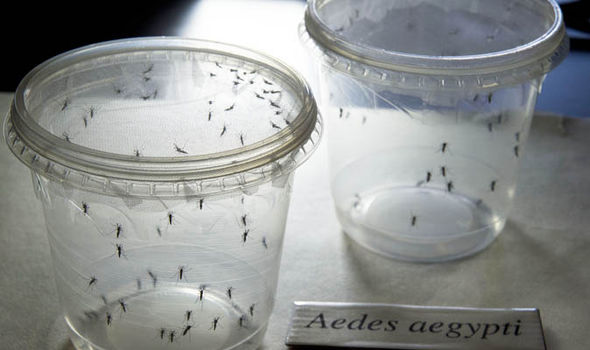
An insect expert has warned that mosquitoes which carry the Zika virus, have already been spotted in Britain.
Biologist Howard Carter claims that the bugs were spotted in Kent and West Sussex, suggesting that the Zika virus could make its way to the UK.

BYPASS THE CENSORS
Sign up to get unfiltered news delivered straight to your inbox.
You can unsubscribe any time. By subscribing you agree to our Terms of Use
Latest Video
RT reports: Carter says he has seen the Aedes Aegypti mosquitoes near Chichester and in other areas of the British countryside.
“They are here already and I have seen them myself north of Chichester in West Sussex.
“I am aware of sightings on the Kent coast which have been reported to me so it is not a matter of if or when – they are here,” he said.
He explained the mosquitoes have arrived in the country by nestling into the grooves of car tires, where they then lay their eggs in water trapped in the rims. Carter said they could also have traveled to Britain in stagnant water in container ships.
“They are not here in any great numbers yet. But in my view it is only a matter of time before that becomes the case.
“It may be a year or it may be 10 but it will be here because of global warming creating a warmer and more attractive climate,” he added.
The virus has spread across 20 countries in Central and South America, including Brazil, which is suffering a large rise in cases, with almost 1 million feared to be infected. There is no cure or treatment for the Zika virus.
Three British citizens and one Dane have reportedly caught the virus after traveling to South America. They are the only Europeans currently affected.
Pregnant women are being encouraged not to travel to the countries, or, if travel is necessary, to take anti-bite precautions and use insect repellent.
It is looking likely that the Zika Virus is becoming the next Ebola.
The World Health Organisation has warned that the Zika virus has the potential to become an “explosive pandemic”, amid concerns that it may have already crossed to the common mosquito thus increasing its chances of being spreading around the world.
US scientists have urged WHO to do more to combat the virus and learn the lessons from the Ebola epidemic, for which it was widely criticised for being slow to react to the outbreak.
There is currently no vaccine for the virus, but scientists at the University of Texas Medical Branch have been to Brazil to carry out research in order to find one.


